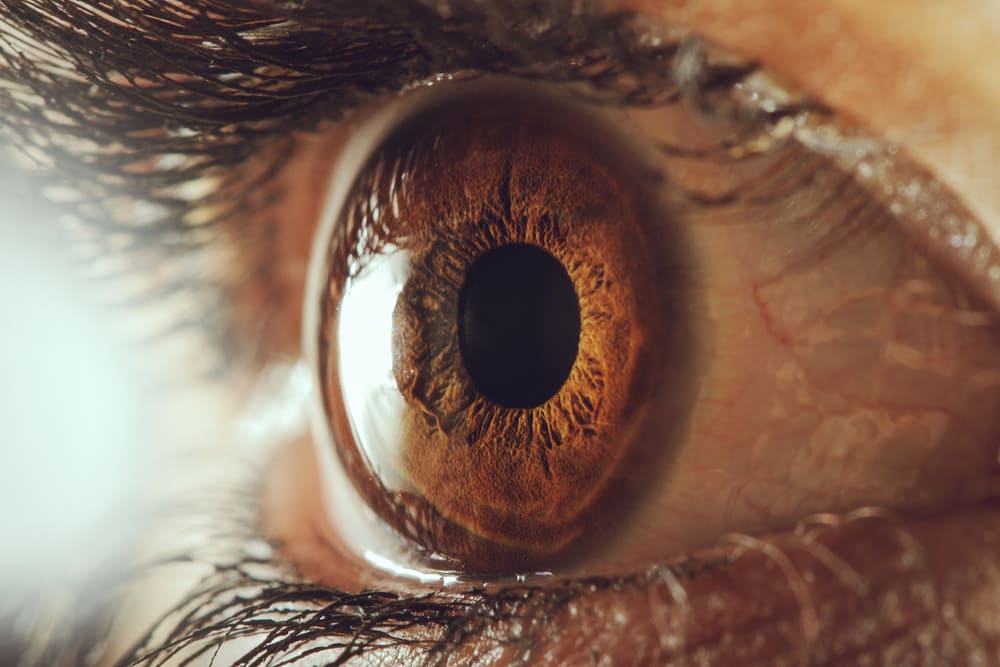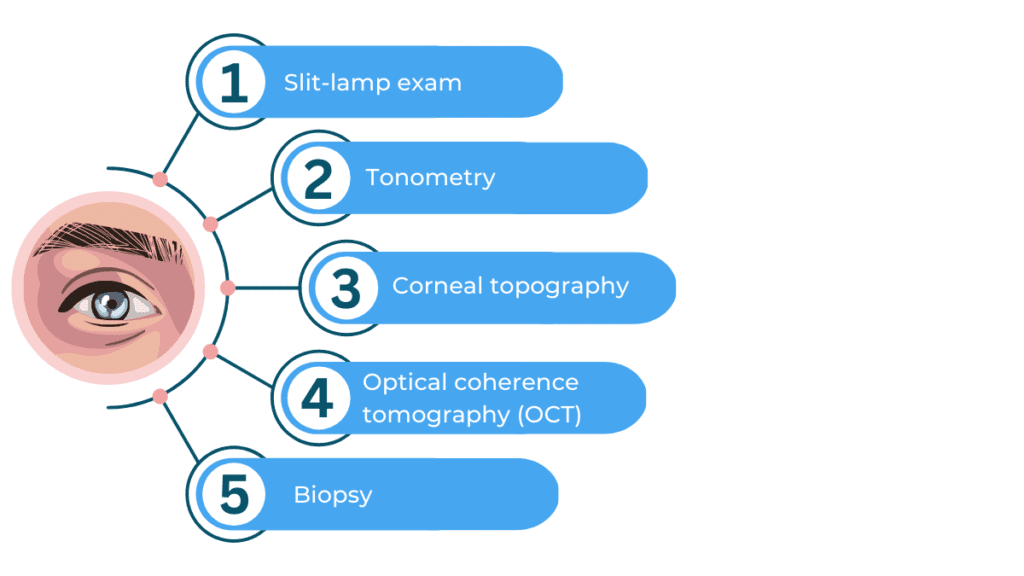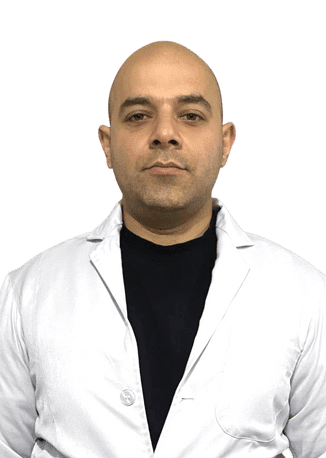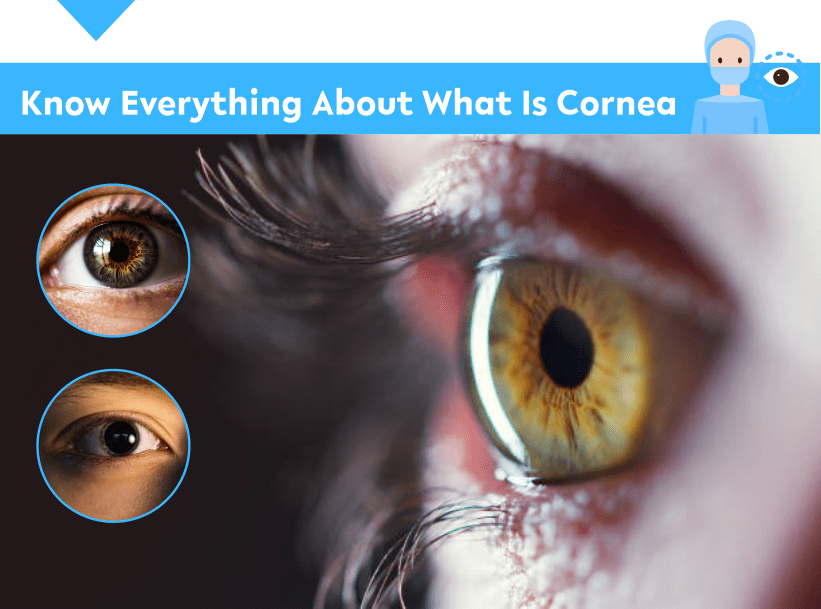
Dr. Aditya Sharma
MBBS, MS (Eye)
Specializations: Dry Eye, Keratoconus & Cornea Transplantation, Cataract Surgery, LASIK
Clinical Experience: 11 years
Total Surgeries to date: 31,580
Are you looking for the best Cornea specialist in Jalandhar or Punjab? At our NABH-accredited superspecialist Duggal Eye Hospital Jalandhar, we have the services of highly skilled experienced Cornea surgeon to treat all corneal diseases and cornea surgeries.
Even though corneal diseases like dystrophies that are caused by genetics can’t be stopped, early detection and treatment can often save your vision. Only a qualified Cornea specialist is capable of achieving the best results
Our accurate diagnoses, experienced surgeon and treatment affordability has helped us earn the trust of every eye patient that visits us for best eye treatment in Jalandhar.
What is Cornea?
The Cornea is the outermost transparent layer with a dome-shaped appearance. It is the first structure light travels through when it enters the eye and covers the front of the eye, including the iris, pupil, and anterior chamber. A crucial component of the eye is the Cornea.
Role of Cornea?
The Cornea protects the eye. It acts as a barrier that prevents dust, dirt, and other harmful things from entering the eye. It also helps block some UV light from the sun that can hurt your eyes.
Tears feed the Cornea. The Cornea doesn’t have a blood supply, so the tears that wash over the eye provide it. Tears also help keep the Cornea moist, which is essential for keeping it straightforward and able to focus light.

How does the Cornea work?
The incoming Light enters the eye through the Cornea. The Cornea is the first part of the eye that light passes through. Because it is shaped and clear, the Cornea can bend and focus light on going to the lens.
The Cornea bends light. The shape of the Cornea and its ability to turn light called its refractive index, work together to bend light rays as they enter the eye. This makes it easier for the light to focus on the retina at the back of the eye. And hence we can see an image formed on Retina via Cornea and interpreted by the brain via the optic nerve.
What are the Common diseases of Cornea:
- Most Common Disorders Of The Cornea
- Keratoconus
- Corneal Scar
- Dry Eyes
- Pterygium
- Corneal Dystrophy
- Corneal Infections
- Ocular surface disorders
- Corneal Trauma
What are the symptoms and Signs of Corneal diseases?
Remember, corneal disorders are not one single disease; rather a group of disorders that targets the eye’s Cornea in their own way. Such a group of corneal diseases may present varied signs and symptoms. We have listed here the most common corneal disease symptoms.
- Excessive tearing
- Eye discharge
- Blurry Vision eye
- Light sensitivity
- Eye pain
- Inflammation and Red eyes
- Experiencing itching or burning in the eye
- Loss of sight or less clear vision
- Lights with halos or glare
- Cloudiness or opacity of the Cornea
- Corneal ulcers or erosions
- recurrence of a Foreign body sensation in the eye
How to diagnose corneal diseases?
A complete eye exam by an ophthalmologist or optometrist is usually needed to diagnose a corneal disease. Here are some tests and procedures that may be used to find out what’s wrong with the Cornea.
Test for clear vision: Using an eye chart, this test checks how clear and sharp your vision is.
- Slit-lamp exam is undertaken with a special microscope that lets your doctor look closely at the Cornea. They may also use a special dye called fluorescein to help show up any problems on the Cornea.
- Tonometry: Used in measuring the pressure inside your eye, which can be a vital sign of some corneal diseases.
- Corneal topography is an imaging test that does not hurt the eye and makes a map of the Cornea’s surface, which can help find problems.
- Optical coherence tomography (OCT): This non-invasive imaging test uses light waves to make cross-sectional pictures of the Cornea.
- Biopsy: A tiny corneal tissue may be taken for in-depth evaluation for any malignancy or tissue degeneration.
Our cornea specialist will carefully study your test reports and make an accurate diagnosis with the clinical evaluation and patient history and symptoms. And your line of treatment is then accordingly worked out.

What are the Treatment choices for corneal diseases?
Any treatment is directly dependent on the exact disease and cause. However, there are some established ways to treat corneal disease, depending on the type and severity of the disease. Common treatments for diseases of the Cornea:
- Corneal abrasions or scratches: Antibiotics and eye drops may be used to treat pain and swelling and prevent infection.
- Corneal infections. These are usually treated with antibiotic, antiviral, or antifungal eye drops or ointments a doctor gives. In severe cases, you may be given pills to take by mouth.
- This can be treated with contact lenses or eyeglasses to improve vision or with surgery like corneal cross-linking or corneal transplant to correct the shape of the Cornea.
- Corneal dystrophies. They are treated with drugs, surgery, or both. Hence which option to go for depends on the type and severity of the corneal dystrophy.
- Corneal ulcers: usually treated with antibiotics or antifungal drugs; in severe cases, you may need to stay in the hospital.
- Dry eye syndrome. This widely prevalent corneal condition can be treated with artificial tears, prescription eye drops, or drugs that make more tears.
- Corneal Transplants: A corneal transplant, or corneal grafting, is a surgical procedure to replace a damaged or diseased cornea with a healthy donor cornea. The surgery involves removing and replacing the damaged Cornea with a clear cornea from a deceased donor. The new Cornea is stitched into place and may take several months to heal fully. A corneal transplant is typically used to treat conditions such as corneal scarring, keratoconus, and corneal degeneration.
You can help stop corneal diseases by taking the following steps:
Maintain body Hygiene. Wash your hands often, especially before touching your eyes, to avoid infections that could lead to corneal disease.
Use Protective Eye wear: Protect your eyes by wearing safety glasses when you play sports or do other things that could cause eye injuries.
Avoid sharing Optical wear & items. Don’t share contact lenses, eye makeup, or other things that come in contact with your eyes, as this can make you more likely to get an infection.
Periodic breaks from digital screens: Take breaks when using digital devices. If you spend a lot of time on your computer, tablet, or phone, take breaks often to rest and keep your eyes from getting tired.
Eye examinations: Get your eyes checked regularly. Regular eye exams can help find early signs of corneal disease and other eye problems so they can be treated immediately.
In addition to these preventive steps, it’s essential to take care of any underlying health conditions, such as diabetes or autoimmune disorders, that could make you more likely to get the corneal disease. Talk to your doctor if you are worried about the health of your eyes or if you notice any signs of corneal diseases
Meet Our Team
Our Eye Super specialists are qualified, skilled, and experienced to treat all eye diseases with best-in-class facilities & Medical equipment.

Dr. Sanjeev Duggal
MS ophthalmology

Dr. Mohit Ghai
Consultant Ophthalmologist


